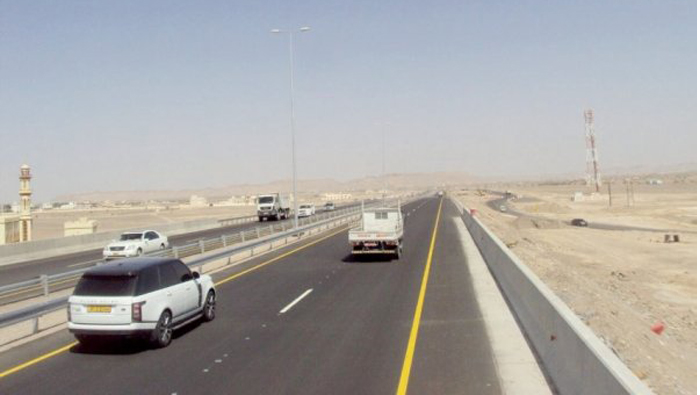
Muscat: A roadmap aiming to improve talent, trade and the use of new technology in the road transportation industry was signed at the conclusion of the International Road Union (IRU) World Congress.
Known as the ‘Muscat Compact’, the roadmap seeks to make road transport logistics smoother. It incorporates new technologies, as well as guides public-private collaboration at local, national, regional and global levels.
Linking both innovation and human resource development together, Dr Ahmed Al Futaisi, Minister of Transport and Communications, said at the global event, “With the evolution of disruptive technologies that transformed business models and redefined industries, it is expected that the world will witness considerable growth in new and alternative skills due to the increased demand for this category of talent”.
The compact was presented by Emil Kaikiyev, Minister in charge of Energy and Infrastructure of the Eurasian Economic Commission, during the congress’s closing session at the Oman Convention and Exhibition Centre.
Kaikiyev said, “IRU has long advocated an end to silo approaches, with harmonisation and shared global best practices. This is more important now than ever, as we face accelerated change and also significant opportunities. The Muscat Compact is the beginning of a new proactive era for transport, where we act together to design our future and we start building it”.
Secretary General of IRU, Umberto de Pretto, stated, “This is a defining moment for the industry. We can’t predict the future, but we can forge our own destiny within it. The survival of the industry – of global prosperity – depends on it”.
The compact was one of many outcomes of the three-day global event, which saw global decision-makers come together to discuss improving trade, positive regulations, digitalisation and Oman’s development.
Underlining the urban growth, Mwasalat CEO, Ahmed Al Bulushi, also said, “By 2050, 80% of the world population will live in urban cities. Today, 72% of Oman’s population lives in urban areas. This means unprecedented urban traffic and we are working on the solutions to address the future of urban transport”. Al Bulushi said, “The signing of the agreement will enhance the quality and speed of transport of goods across countries. It will also enhance business opportunities that will establish the Sultanate as a global logistics hub.”
He added that many innovative technologies have already been implemented, including electronic reservations at Mawasalat, passenger information collection, inspection systems and self-management systems. “These systems will help develop the transport system, reduce traffic problems, adding, “It will contribute to strengthening the national economy and the development process in the Sultanate.”
He pointed out that working according to the international standards will create a great environment for investments and enhance opportunities in the transport and trade sectors in the Sultanate. This move will lead to the development of transport services and contribute to the achievement of the national logistics strategy, which will facilitate sustainable commercial activities and attract foreign investments to the Sultanate,” he further said.
On the topic of innovation, André Borschberg, Co-Founder, CEO and Pilot of Solar Impulse, stated, “Innovation is all about pushing boundaries. It’s about having the vision to see what existing technology can do and the expertise to bring that vision to reality. It’s about having a license to fail, try again, fail again and eventually succeed. And it’s about courage”.
The IRU World Congress was organised by IRU and hosted by Asyad in collaboration with the Ministry of Transport and Communications. Over 1,000 participants from more than 75 countries attended the three-day event.